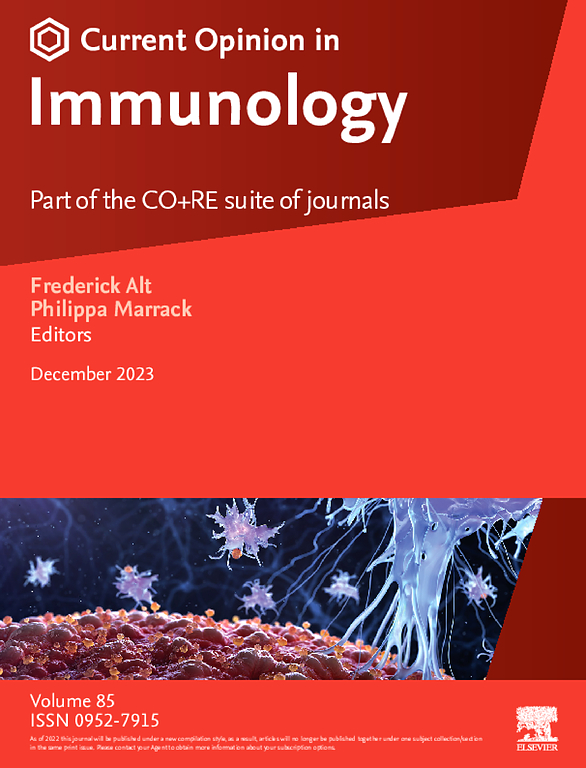红细胞异体免疫免疫遗传危险因素
IF 5.8
2区 医学
Q1 IMMUNOLOGY
引用次数: 0
摘要
对血型抗原的同种免疫是由暴露于受体红细胞(rbc)中缺失的外来抗原而引起的体液免疫反应的结果。有趣的是,并非所有接受不匹配红细胞输血的个体都会产生同种抗体。越来越多的证据表明经典的人类白细胞抗原(HLA)系统在调节这种免疫反应中的作用。最近,非经典HLA分子的多态性与炎症反应的调节有关,特别是在镰状细胞病患者中。自然胎母微嵌合的作用也可能是解释同种免疫反应个体差异的一个考虑因素。不同种族的红细胞抗原和HLA的遗传多样性强调了需要高通量测序技术来改善供体-受体匹配。未来,基因分型策略的目标不仅是评估个体产生同种异体抗体的风险,还应指导选择相容的红细胞单位,从而降低同种异体免疫的可能性。本文章由计算机程序翻译,如有差异,请以英文原文为准。
Red blood cell alloimmunization immunogenetic risk factor
Alloimmunization to blood group antigens is the result of a humoral immune response initiated by exposure to foreign antigens absent from the recipient's red blood cells (RBCs). Interestingly, not all individuals who receive mismatched RBC transfusions develop alloantibodies. Increasing evidence points to the role of the classical human leukocyte antigen (HLA) system in modulating this immune response. More recently, polymorphisms in nonclassical HLA molecules have been implicated in the regulation of inflammatory responses, particularly in patients with sickle cell disease. The role of natural fetomaternal microchimerism may also be a factor to consider in explaining individual variability in alloimmune response.
The genetic diversity of both RBC antigens and HLA across ethnic groups underscores the need for high-throughput sequencing technologies to improve donor–recipient matching. In the future, genotyping strategies should aim not only to assess individual risk for alloantibody development but also to guide the selection of compatible RBC units, thereby reducing the likelihood of alloimmunization.
求助全文
通过发布文献求助,成功后即可免费获取论文全文。
去求助
来源期刊
CiteScore
13.30
自引率
1.40%
发文量
94
审稿时长
67 days
期刊介绍:
Current Opinion in Immunology aims to stimulate scientifically grounded, interdisciplinary, multi-scale debate and exchange of ideas. It contains polished, concise and timely reviews and opinions, with particular emphasis on those articles published in the past two years. In addition to describing recent trends, the authors are encouraged to give their subjective opinion of the topics discussed.
In Current Opinion in Immunology we help the reader by providing in a systematic manner: 1. The views of experts on current advances in their field in a clear and readable form. 2. Evaluations of the most interesting papers, annotated by experts, from the great wealth of original publications.
Current Opinion in Immunology will serve as an invaluable source of information for researchers, lecturers, teachers, professionals, policy makers and students.
Current Opinion in Immunology builds on Elsevier''s reputation for excellence in scientific publishing and long-standing commitment to communicating reproducible biomedical research targeted at improving human health. It is a companion to the new Gold Open Access journal Current Research in Immunology and is part of the Current Opinion and Research(CO+RE) suite of journals. All CO+RE journals leverage the Current Opinion legacy-of editorial excellence, high-impact, and global reach-to ensure they are a widely read resource that is integral to scientists'' workflow.

 求助内容:
求助内容: 应助结果提醒方式:
应助结果提醒方式:


